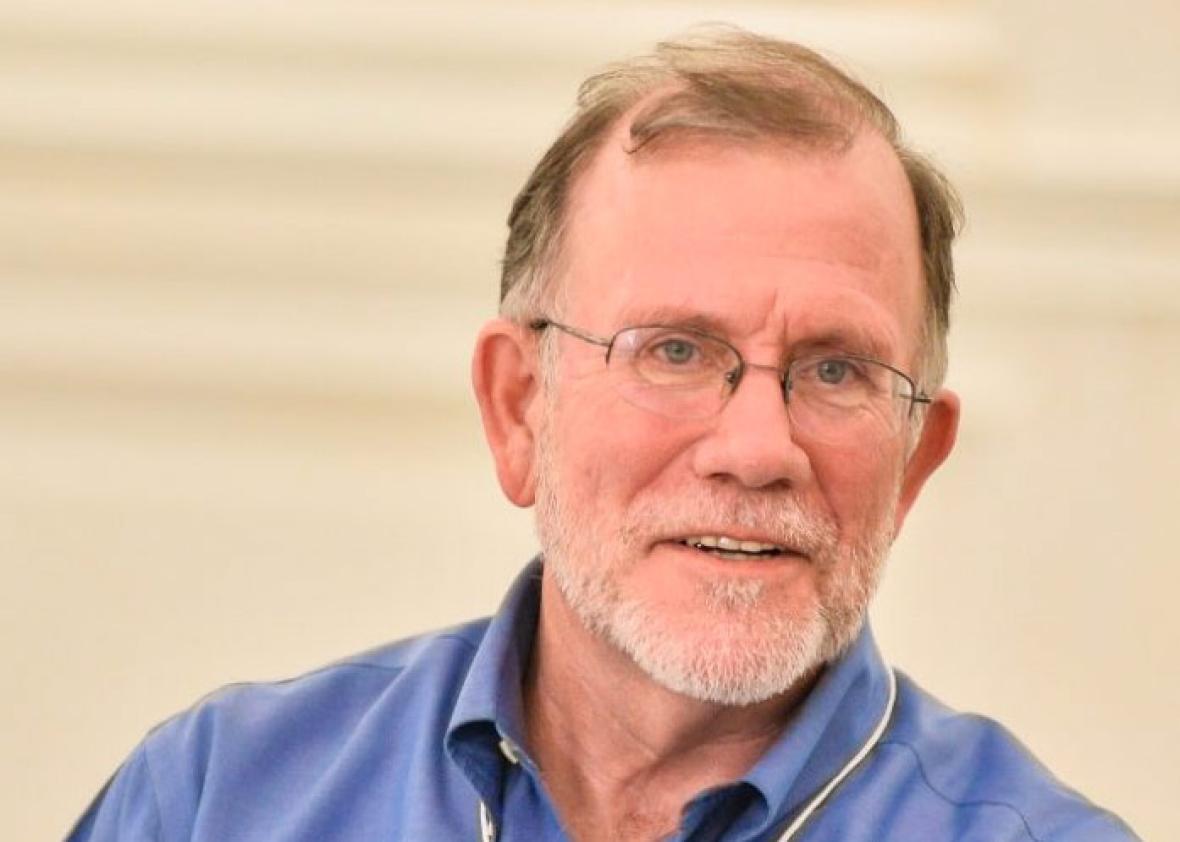Last Friday, friends and admirers of Michael Cromartie gathered in Virginia for his memorial service. Cromartie was a devout Christian, a vice president of the Ethics and Public Policy Center, and in one of his many gregarious exploits, a one-time mascot for the Philadelphia 76ers. Reporters knew him as the founder and organizer of the Faith Angle Forum, which brought together journalists and scholars twice a year to talk about religion, politics, and society.
Cromartie was an ambassador from religion to journalism. Those of us who attended the Forum were supposed to communicate, in turn, with the wider world. I could have taken the opportunity, as a representative from Slate, to build a dialogue between faith communities and the secular left. I didn’t. But as believers say, there’s always time to repent, and the truest repentance is action. So here’s what I learned from my years with Michael Cromartie: In a world full of religious hatred, religious violence, religious oppression, and religious stupidity, there’s a better kind of faith. It’s rich, sane, and healthy. It can teach us to think critically, not just about society at large, but about religion itself.
Good religion is sensible about science. It doesn’t treat evidence of climate change, evolution, or sexual orientation as a threat. It opens its mind to what science reveals, and it asks this question: Given what we are learning about the world, how can faith be true? Often, this question requires reinterpretation of Scripture. Most of my secular friends believe, for instance, that there’s no such thing as a reasonable creationist. They’re mistaken. At Faith Angle, I’ve been introduced to many Christian scholars who interpret creation as a process authored by God but guided by nature and illuminated by Charles Darwin. These scholars are working not on a faith-based reality, but on a reality-based faith.
Good religion has integrity. Christianity, like other traditions, is full of liars, hypocrites, and opportunists. You can point to self-serving televangelists, cardinals who cover up sexual abuse, and Christian-right leaders who worship President Trump. Faith Angle has always been a venue not for celebrating these people, but for exposing their corruption. That’s where I met Russell Moore, an official at the Southern Baptist Convention who nearly lost his job for denouncing the cult of Trump. Even at the height of the cult, you couldn’t find a Trump supporter at a Faith Angle conference. And our last session in May featured an unsparing takedown of prosperity preachers. The most powerful criticisms of sin in the name of religion come from within religion itself.
Good religion pursues justice. At Cromartie’s memorial service, there was a lot of talk about heaven. But at Faith Angle, he focused on the work to be done on this earth. After Dylann Roof murdered nine congregants at a Charleston, South Carolina, church in 2015, Cromartie brought in Albert Raboteau, a Princeton professor and son of a black man killed by a white man, to give a wrenching talk about forgiveness and reform. At other sessions, scholars in Catholic social teaching laid into anti-immigrant politics and economic inequality.
Good religion is humble. It understands that belief and virtue are bigger than any one faith. Cromartie was an evangelical Protestant. At Faith Angle conferences, he hosted speakers who were Muslim, Jewish, Catholic, and of other traditions. The point of getting together was never proselytization or vindication. It was to learn about one another. When you accept that you’re fallible and that God is beyond your comprehension, you begin to understand that other people may come to God in ways different from yours.
Above all, good religion is more about questions than about answers. Prophets, missionaries, and hucksters often promise that belief will settle your doubts, ease your anxieties, or end your suffering. But Faith Angle was always about inquiry. It didn’t just bring religion to journalists; it brought journalists to religion. We interrogated speakers with the same skepticism we’d bring to a press conference: If your savior says he loves you, check it out. The scholars, for their part, brought a spirit of academic exploration. The soul of each session was in the seminar, not the lecture, and the biggest questions were never resolved. The deeper you go, the more you find that at the core of everything is mystery.
Some of these lessons apply not just to religion as we normally understand it, but also to the secular ideologies many nonbelievers have adopted: atheism, progressivism, environmentalism, feminism, multiculturalism. We all have belief systems, and we can practice them well or poorly just as a Christian, Jew, or Muslim can. When we substitute dogma for thought, dismiss other points of view, or excuse violence in the name of righteousness, we’re practicing bad religion. We, too, must reflect and learn.
The Faith Angle Forum will go on. Pete Wehner, a senior fellow at the Ethics and Public Policy Center, is taking up the baton from Cromartie. At the memorial service, as I listened to promises of a heaven in which I don’t believe, I stewed about the cancer that killed Mike. He was 67, vigorous, and doing God’s work. He was a wonderful man. Meanwhile, at 71, Trump continues merrily along, wrecking whatever he can. What kind of God would do that? To an atheist, that question is the end of the matter. To a believer, it’s just the beginning.
